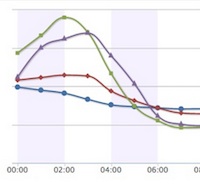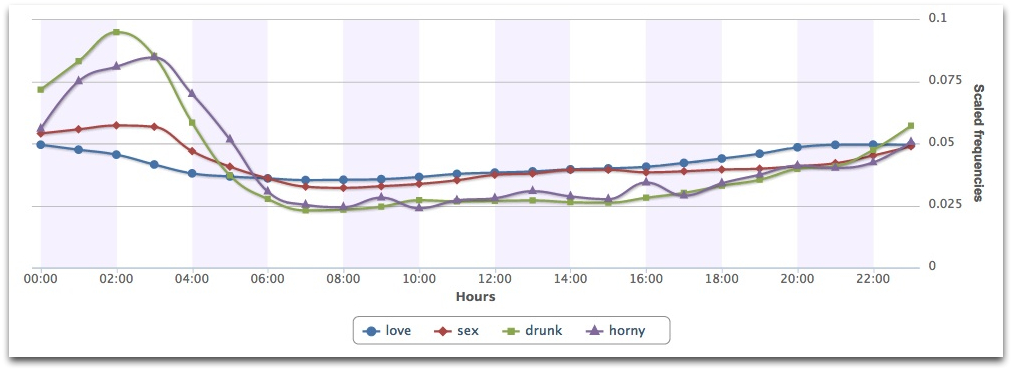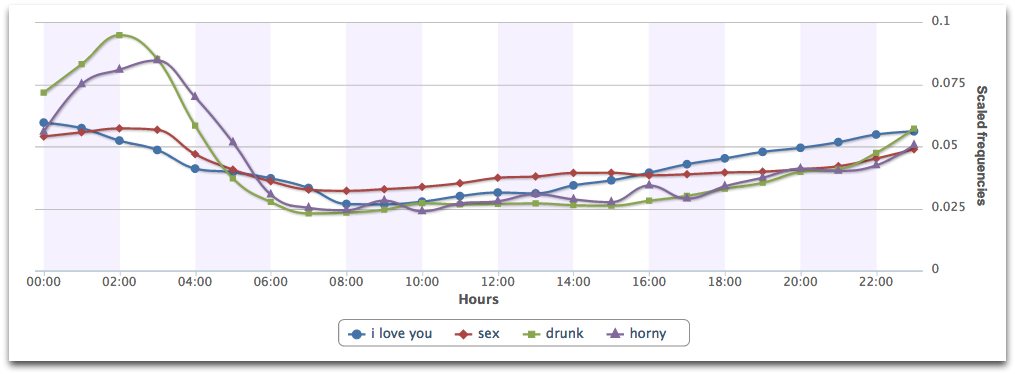
When it comes to sex and love, what is blurring the line?
It’s been said that every seven seconds men think about sex, but what time of day do they think about it most, are they the only ones thinking about it, and what causes them to think about it? Oh, and as for love, why do we so often get the two confused? Is there some kind of factor causing this blur? The results of this study give us some insight into the love lives of men and women.
Thanks to University of Edinburgh we were able to conduct this research using a tool they developed called TweetOLife. Researchers used TweetOLife to analyze millions of tweets collected between November 2009 and February 2010. It let us analyze the gender and hourly differences of these tweets, so that we could end up with the results below.
Which Gender Actually Talks About Sex More
Our first two questions were common ones: which gender talks about love more and which gender talks about sex more? If you look at the graph below, you’ll find that women talk about love 26% more than men. The exact numbers showing 37% of men and 63% of women discussed love. But what surprised us is that it is pretty even between the genders when it comes to who is talking about sex. Turns out women talk about sex nearly the same as men do. The actual numbers reveal 48% of men and 52% of women tweeted about sex.
So When Is Sex On the Mind?
So we know who’s talking about it sex and love, but when are they talking about it, and what is making them think about it? This answer was not that surprising: alcohol.
When we looked at the frequency of tweets containing the word “drunk,” we noticed these tweets peaked from 10pm to 2am. We also noticed tweets containing the words “sex” and “love” also increased during these times. Just for fun, we put in the word “horny” and it had the highest correlation with “drunk” tweets.
While this study is not perfect, it does reveal some interesting insights into the sex and love lives of men and women. It also gives us an idea of what may be blurring the line between these two feelings.
It is important to remember these are general topics and phrases used in tweets. For example, analyzing tweets from a person saying “I love my boyfriend” would have been mixed in with the same patch of people stating “I love Justin Bieber.” Fans drunken love for Bieber would make a cool study though. In the study’s defense, these people are still stating their love which may have increased with intoxication. Also, to make sure this did not flaw the data we also tested the phrase “I love you” and found a similar correlation.
So what can we learn from this study? If someone tells you they love you between 10pm and 2am, you might not want to trust what they are telling you.



Leave a Reply